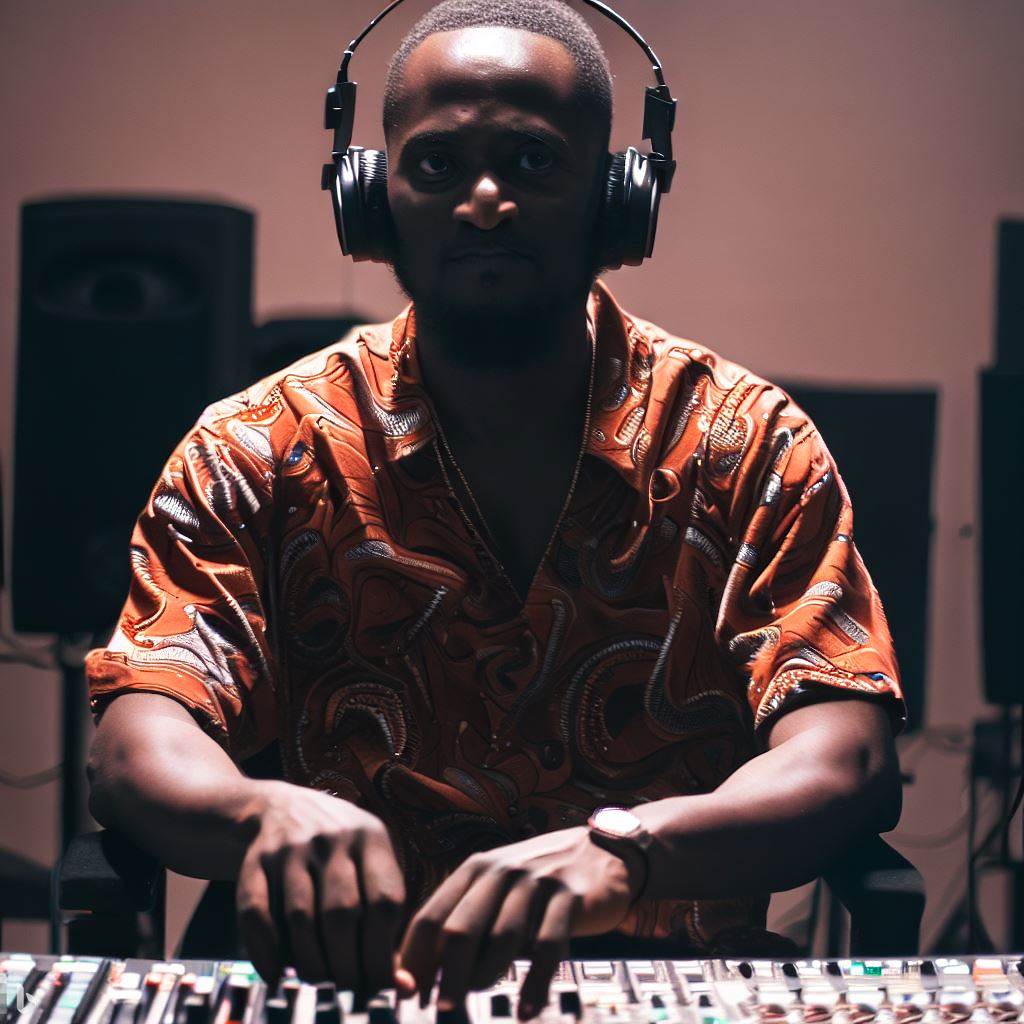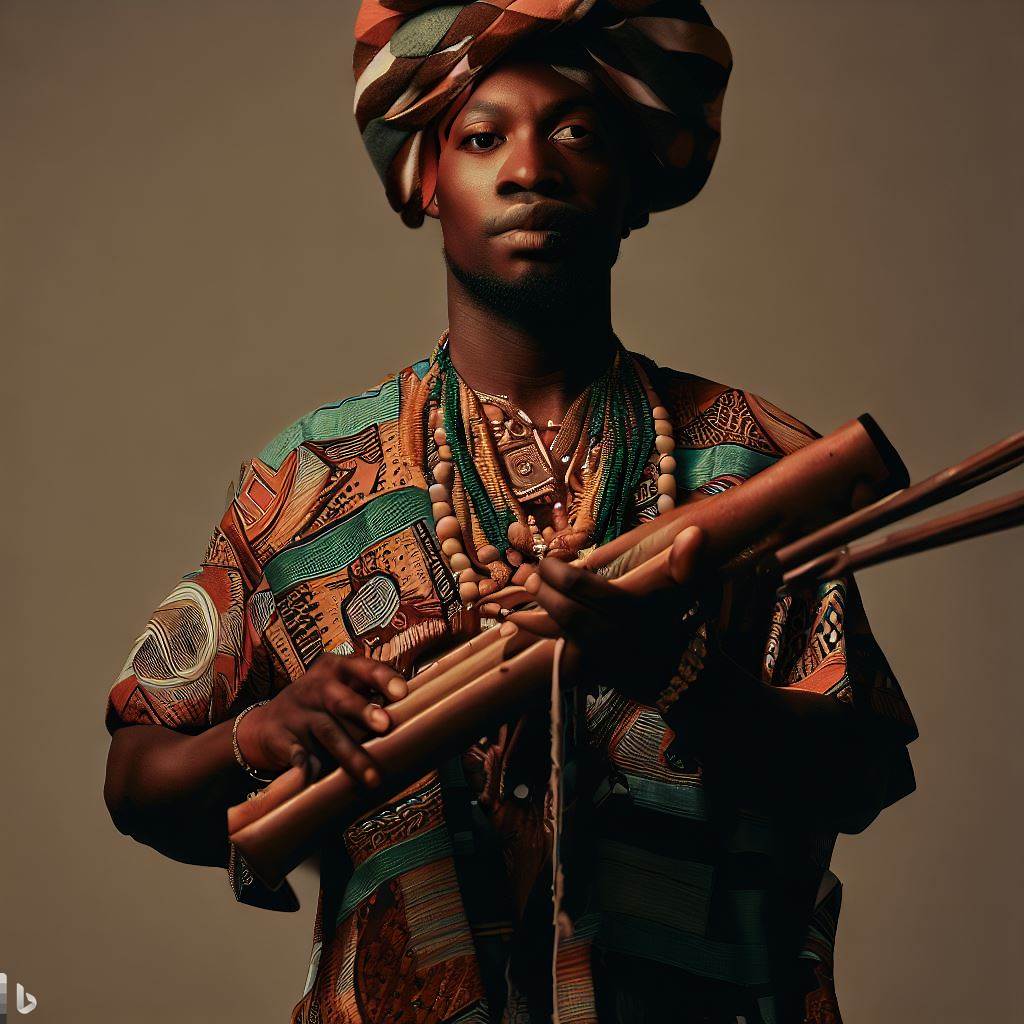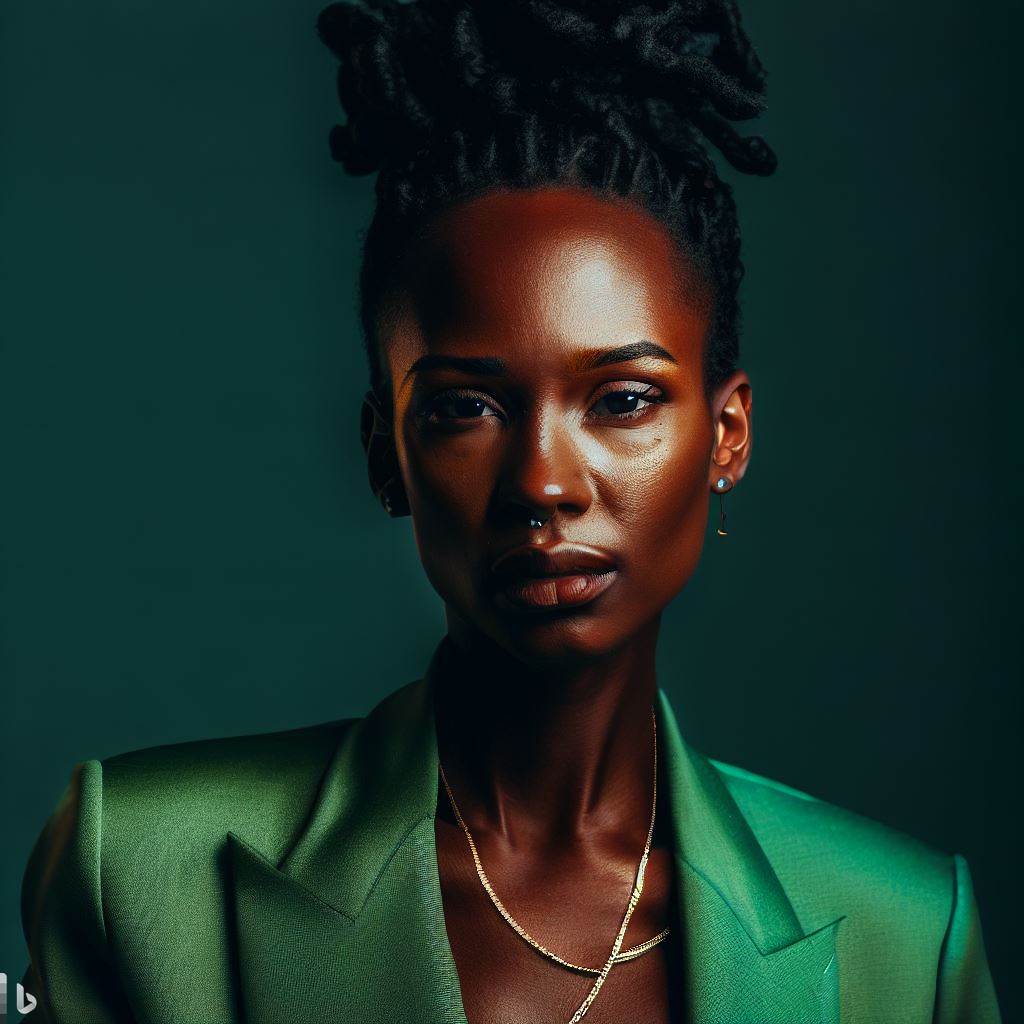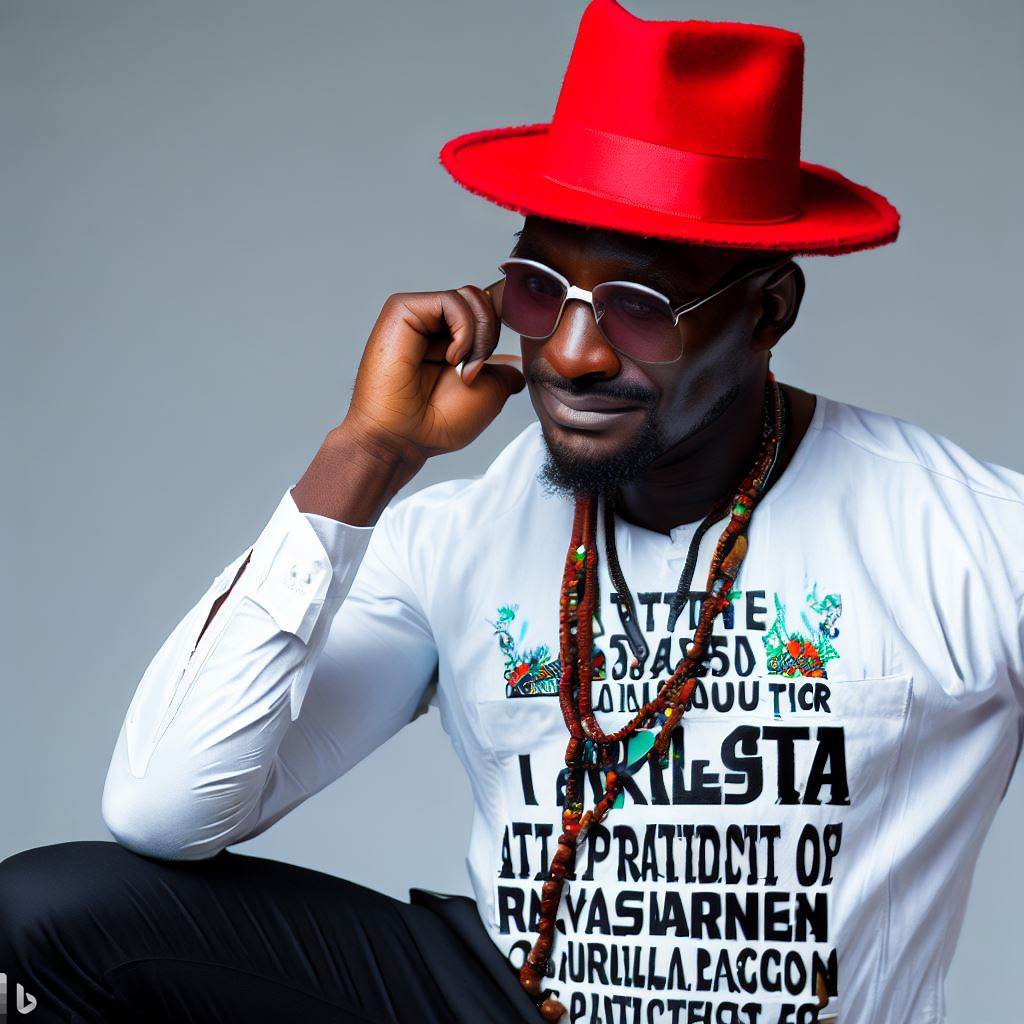Introduction
Nigeria’s music scene is vibrant and diverse, reflecting the country’s rich cultural heritage and musical talent. This article is about the Nigeria Music Director
Understanding the industry requires the director’s perspective, as they hold a unique position to shape and guide the artistic vision.
In this blog post, we will explore Nigeria’s music scene from the director’s perspective, highlighting the role they play in shaping the industry’s direction and success.
Directors have the power to influence artists, curate collaborations, and create innovative music videos that capture the essence of Nigerian music and Nigeria Music Director in genenral.
By examining the director’s role, we can gain deeper insights into the creative process, the challenges they face, and the impact they have on the growth and development of Nigeria’s music scene.
From directing iconic music videos that have gone viral to pushing the boundaries of visual storytelling, directors contribute significantly to the success and global recognition of Nigerian artists.
This post will delve into the importance of the director’s perspective in understanding and appreciating the intricacies of Nigeria’s music industry.
By exploring their creative vision and the decisions they make behind the scenes, we can gain a comprehensive understanding of the evolution and impact of Nigeria’s music scene.
Join us on this journey to uncover the director’s role in shaping Nigeria’s vibrant music industry.
Historical Background of Nigerian Music
Traditional music and folk songs
- Nigerian music has a rich history rooted in traditional music and folk songs.
- Various ethnic groups in Nigeria have their distinct music styles and instruments.
- Traditional music often accompanied communal gatherings, religious ceremonies, and storytelling.
- Folk songs were passed down from generation to generation, reflecting the society’s culture and values.
- Instruments such as the talking drum, xylophone, and flute were commonly used in traditional music.
Influence of Western music genres
- The arrival of colonial powers introduced Western music genres to Nigeria.
- Christian missionaries brought hymns and church music which influenced Nigerian music.
- The introduction of instruments like the piano, guitar, and brass instruments influenced the local music scene.
- Nigerians started incorporating Western music elements into their traditional styles, creating a fusion of genres.
- This fusion led to the development of distinct Nigerian music genres such as juju, highlife, and Afrobeat.
Emergence of highlife and Afrobeat
- Highlife music emerged in the 1950s, blending traditional rhythms with Western instruments and jazz influences.
- E.T. Mensah, Bobby Benson, and Victor Olaiya were pioneers of highlife music in Nigeria.
- Highlife music became popular for its danceable melodies and uplifting lyrics, reflecting Nigerian society.
- In the 1970s, Fela Kuti pioneered Afrobeat, a fusion of highlife, jazz, funk, and Yoruba traditional music.
- Fela Kuti used music as a platform to address social and political issues, gaining international recognition.
Popularization of Nigerian music globally
- Nigerian music gained global prominence in the 1990s with the rise of artists like Fela Kuti, King Sunny Ade, and Ebenezer Obey.
- This era saw the emergence of Nigerian pop music, often referred to as “Naija music.”
- Artists such as D’banj, P-Square, and 2face Idibia popularized Nigerian music with catchy beats and relatable lyrics.
- The internet and social media platforms further propelled Nigerian music, allowing artists to reach a global audience.
- Today, Nigerian musicians like Burna Boy, Wizkid, and Davido are celebrated worldwide, winning international awards and collaborating with global artists.
Traditional music and folk songs laid the foundation, while the influence of Western music genres introduced new elements.
The emergence of highlife and Afrobeat paved the way for Nigerian music’s global recognition.
Nigerian artists continue to make waves globally, showcasing the richness and creativity of the nation’s music scene and Nigeria Music Director play a crucial role.
Read: Legal Aspects of the Music Director Profession in Nigeria
Contemporary Nigerian Music
Explosion of Afrobeats and Afro-pop genres
- Nigeria’s music industry has witnessed a massive rise in the popularity of Afrobeats and Afro-pop genres.
- These genres have gained international recognition and have become a significant part of the global music scene.
- Afrobeats and Afro-pop infuse traditional Nigerian rhythms with contemporary sounds, creating a unique and infectious musical style.
- Artists like Burna Boy, Wizkid, and Davido have played a crucial role in popularizing these genres both locally and globally.
- The infectious beats and catchy melodies of Afrobeats have captivated audiences, making Nigerian music a force to be reckoned with.
Pioneering artists and their impact
- Pioneering Nigerian artists like Fela Kuti, King Sunny Ade, and Onyeka Onwenu laid the foundation for the country’s music scene.
- Fela Kuti’s politically charged music and Afrobeat sound revolutionized the industry, inspiring generations of musicians.
- King Sunny Ade’s fusion of Juju music with international elements brought Nigerian music to the global stage.
- Onyeka Onwenu’s soulful voice and meaningful lyrics made her one of the most influential female artists in Nigeria.
- These artists paved the way for future generations and their impact can still be felt in Nigerian music today.
Use of digital platforms and social media
- The advent of digital platforms and social media has been a game-changer for Nigeria’s music industry.
- Artists can now leverage these platforms to share their music with a global audience, bypassing traditional record labels.
- Social media platforms like Instagram, Twitter, and YouTube have become essential to
ols for promoting music and connecting with fans. - This shift has empowered Nigerian artists to have more control over their careers and gain international recognition.
- Additionally, digital platforms have made it easier for music lovers to discover and access Nigerian music from anywhere in the world.
Current trends and sub-genres
- Contemporary Nigerian music is not limited to Afrobeats and Afro-pop, as artists continue to explore various sub-genres.
- Some popular sub-genres include Alté, a fusion of traditional African sounds with alternative music elements.
- Other emerging genres include Afro-fusion, Afro-house, and Afro-R&B, which blend different musical influences to create unique sounds.
- The popularity of these sub-genres demonstrates the dynamism and creativity within Nigeria’s music scene.
- Nigerian artists are constantly pushing boundaries and experimenting with new sounds, keeping the industry fresh and exciting.
The contemporary Nigerian music scene has seen an explosion of Afrobeats and Afro-pop genres.
Pioneering artists have had a significant impact, and the use of digital platforms and social media has revolutionised the industry.
Alongside the popular genres, artists are exploring various sub-genres, showcasing the dynamism and creativity of Nigerian music and Nigeria Music Director helped improve quality.
With its infectious beats and unique blend of traditional and modern influences, Nigerian music continues to captivate audiences both locally and internationally.
Read: How to Become a Successful PR Specialist in Nigeria
Role of Directors in the Music Industry
Definition of a music director
- A music director is a professional who oversees and guides the creative and artistic aspects of a music video or film.
- They work closely with the artist or band to bring their vision to life.
- Music directors are responsible for translating the artist’s song into a visual masterpiece.
- They play a critical role in ensuring that the music video aligns with the artist’s brand and image.
Responsibilities and tasks of music directors
- Music directors are in charge of creating concepts and ideas for music videos.
- They collaborate with the artist to understand their message and create a compelling storyline.
- They select locations, cast actors, and plan the overall production of the music video.
- Music directors work closely with cinematographers, choreographers, and stylists to execute their vision.
- They are responsible for the visual aesthetics, editing, and post-production of the music video.
Visual storytelling and enhancing the music experience
- Music directors use visual storytelling techniques to enhance the viewer’s understanding and emotional connection to the music.
- They create a visual narrative that complements and amplifies the lyrics and mood of the song.
- Through the use of camera angles, lighting, and visual effects, music directors create a captivating visual experience.
- They consider the pacing and rhythm of the music to create dynamic and engaging visuals.
- Music directors strive to create a visual representation that resonates with the audience and leaves a lasting impression.
Collaborations between artists and directors
- Collaboration between artists and directors is crucial to create a cohesive and successful music video.
- Artists provide their creative input and vision to the director, who brings their ideas to life.
- Directors bring their expertise and artistic vision to enhance the artist’s concept.
- Communication and trust between artists and directors allow for a seamless creative process.
- Successful collaborations result in music videos that not only entertain but also resonate with the audience.
Nigeria Music Director in genenral. play a significant role in the music industry.
They bring the artist’s vision to life through their creative direction, visual storytelling, and collaboration.
Their responsibilities include conceptualizing music videos, selecting locations and actors, and overseeing the production process.
The collaboration between artists and directors is essential in creating compelling and visually appealing music videos and Nigeria Music Director are to thank for it.
The role of directors in the music industry cannot be underestimated as they enhance the overall music experience for both artists and audiences.
Nigerian Music Videos: A Director’s Playground
Importance of music videos in promoting songs:
- Music videos play a crucial role in promoting Nigerian songs by visually enhancing the audio experience.
- They help to create a brand identity for artists and make their music more relatable to the audience.
- Music videos increase the chances of songs reaching a wider audience and gaining popularity.
- With the rise of digital platforms like YouTube, music videos have become an essential marketing tool for Nigerian musicians.
- They allow artists to tell a story, showcase their creativity, and connect with listeners on a deeper level.
Evolution of Nigerian music videos
- Nigerian music videos have gone through a remarkable evolution, both in terms of quality and content.
- In the past, music videos were often low-budget and lacked professional production values.
- Nowadays, Nigerian music videos can compete with international standards and are visually stunning.
- The availability of advanced camera technologies and editing software has contributed to this growth.
- Nigerian directors are now experimenting with different styles and techniques, pushing the boundaries of creativity.
Innovative concepts and cultural representation
- Directors in Nigeria are known for incorporating innovative concepts and storytelling techniques into their music videos.
- They often use visual metaphors and symbolism to convey deeper meanings and emotions.
- Nigerian music videos also celebrate the country’s rich culture by showcasing traditional dances, clothing, and settings.
- Artists and directors are embracing their Nigerian heritage and presenting it with a modern twist.
- These videos not only entertain but also educate viewers about Nigerian culture and traditions.
Examples of iconic Nigerian music videos
- P-Square’s “Personally” music video pays tribute to Michael Jackson and showcases the duo’s exceptional dance skills.
- Burna Boy’s “Ye” music video captures the essence of Lagos, Nigeria, with its vibrant visuals and energetic performances.
- Wizkid’s “Fever” music video created a buzz with its sultry storyline and chemistry between the artist and Tiwa Savage.
- Tiwa Savage’s “All Over” music video received critical acclaim for its colorful visuals and infectious energy.
- Davido’s “If” music video broke records and introduced a unique blend of Afrobeat and Western aesthetics.
Nigerian music videos have become a playground for directors to showcase their creativity and promote songs.
These videos play a vital role in the success of Nigerian musicians by increasing their reach and brand recognition.
With innovative concepts and cultural representation, Nigerian music videos are not only entertaining but also educational thanks to Nigeria Music Director.
They have evolved significantly in terms of quality and content, rivaling international standards. The examples of iconic Nigerian music videos demonstrate the impact and influence they have on the global music scene.
Read: Nigeria’s Animation Industry: Past, Present, Future

Challenges and Opportunities for Nigerian Music Directors
Limited resources and infrastructure
- Nigerian music directors face challenges due to limited resources and inadequate infrastructure.
- Lack of state-of-the-art equipment and facilities hinders the production quality of music videos.
- This limitation often forces directors to be more creative and innovative in their approach.
- Additionally, the lack of proper funding and support from the government makes it difficult for directors to fully realize their visions.
Increased demand due to the global popularity of Nigerian music
- The rise in popularity of Nigerian music globally has led to increased demand for music directors.
- Directors are now tasked with creating visually appealing and captivating music videos that capture the essence of the Nigerian music scene.
- This demand offers opportunities for Nigerian directors to showcase their talent and creativity to a global audience.
- However, it also puts pressure on directors to consistently deliver high-quality videos to meet the expectations of both local and international audiences.
The role of technology in advancing directors’ creativity
- Technological advancements have greatly influenced the work of Nigerian music directors.
- Access to high-quality cameras, editing software, and visual effects has expanded the creative possibilities for directors.
- Directors can now experiment with different styles and techniques to enhance the visual storytelling in music videos.
- Moreover, technology has made it easier for directors to collaborate with artists and producers, even when they are in different locations.
International collaborations and career opportunities
- Nigerian music directors have the opportunity to work with international artists and filmmakers.
- Such collaborations can help directors gain exposure and expand their network within the global music industry.
- Directors who successfully collaborate with international artists may also have the chance to work on high-budget projects and gain recognition.
- Moreover, international collaborations provide directors with the opportunity to learn from different artistic perspectives and styles.
Nigerian music directors face challenges related to limited resources and infrastructure.
However, the global popularity of Nigerian music presents opportunities for them to showcase their talent and expand their careers.
Technology plays a crucial role in advancing directors’ creativity and facilitating collaborations.
International collaborations further offer directors the chance to gain exposure, work on prestigious projects, and learn from diverse artistic perspectives.
Read: The Role of Public Relations Specialists in Nigeria Today
Success Stories: Notable Nigerian Music Directors
Ayodeji Akindele (Director Q)
Director Q, also known as Ayodeji Akindele, is a highly talented music director in Nigeria.
He has worked with some of the biggest names in the industry, including Wizkid, Davido, and Tiwa Savage. His creative and innovative approach to music videos has earned him numerous accolades.
Clarence Peters
Clarence Peters is another prominent name in Nigeria’s music video directing scene.
He is the son of legendary musician Sir Shina Peters and has carved out a successful career for himself.
Clarence is known for his visually stunning music videos and his ability to bring artists’ visions to life.
Meji Alabi
Meji Alabi is a Nigerian-British music director who has made a significant impact on the industry.
He has directed videos for artists like Burna Boy, Wizkid, and Olamide. Meji’s attention to detail and storytelling abilities have made him one of the most sought-after directors in the country.
Kemi Adetiba
Kemi Adetiba is a renowned music director and filmmaker in Nigeria.
She has directed music videos for notable Nigerian artists such as Tiwa Savage, MI Abaga, and Wizkid.
Kemi’s unique style and ability to capture emotions in her visuals have earned her numerous awards and recognition.
These music directors have played a vital role in shaping Nigeria’s music scene and have contributed to its success on a global scale.
Their creativity, vision, and ability to bring artists’ ideas to life have elevated Nigerian music videos to a whole new level.
work has not only captivated local audiences but has also gained international recognition.
The music videos directed by Ayodeji Akindele (Director Q) have garnered millions of views on various platforms.
His artistic and innovative approach has set him apart from other directors, making him a favorite among artists and fans alike.
His ability to capture the essence of a song and translate it into visually stunning visuals is truly remarkable. Director Q continues to push boundaries and create groundbreaking music videos.
Clarence Peters, the son of a musical legend, Sir Shina Peters, has established himself as one of the best music directors in Nigeria.
His expertise lies in his exceptional cinematography skills and his attention to detail.
Clarence has a knack for creating elaborate sets and capturing the energy of a performance, making his music videos a visual delight.
Meji Alabi’s work reflects a fusion of Nigerian and British influences, bringing a fresh perspective to music videos.
His ability to tell compelling stories through visuals has earned him praise from both artists and audiences.
His collaborations with some of the biggest names in the industry have solidified his position as an exceptional music director.
Conclusion
Recap of Nigeria’s music scene and the director’s perspective
Throughout this blog chapter, we have explored Nigeria’s vibrant music scene from the perspective of directors.
We have delved into the various aspects that make Nigerian music unique and captivating.
From the infectious rhythms to the powerful lyrics, Nigerian music has taken the world by storm.
Appreciation for the contribution of directors to the industry’s growth
Directors in Nigeria’s music industry play a crucial role in shaping the success of artists.
They bring creative ideas to life through music videos and live performances, enhancing the overall experience for fans.
Their dedication and vision contribute significantly to the industry’s growth.
Closing thoughts on the future of Nigerian music and its directors
As we look towards the future of Nigerian music, it is clear that directors will continue to play a vital role.
With advancements in technology and a growing international audience, the demand for high-quality music videos and live performances will only increase.
Nigerian directors will need to adapt and innovate to meet these expectations.
Nigeria’s music scene is a force to be reckoned with, and directors are at the forefront of its success.
Their artistic vision and dedication have helped elevate Nigerian music to new heights.
As we anticipate the future, we can expect even greater achievements from both the industry and its talented directors.




